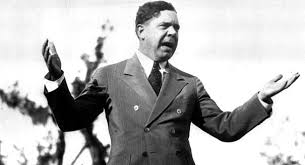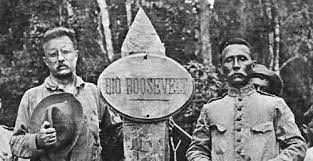He wanted to expand a road-building program and build a new massive state capitol building as a lasting monument to his reign. The legislature (and Huey's own brother) opposed the plan, so Huey had to come up with a way to persuade them, and make sure he retained power.
His answer: he was going to run for the United States Senate.
But there were two men who had damaging secrets about the governor, and something had to be done about them before the election.
So Huey had them kidnapped.
He had the Louisiana Bureau of Criminal Identification, which was essentially his private police force, arrest the two men in the middle of the night and hide them away from the press, as well as the Federal agents called in to investigate.
Huey kept them under wraps until after the Senate race was over, which he won, using a number of electoral shenanigans like ballot box stuffing and registering trees to vote.
After the election, Huey began signing his name ‘Huey P. Long, Governor and Senator-Elect.






